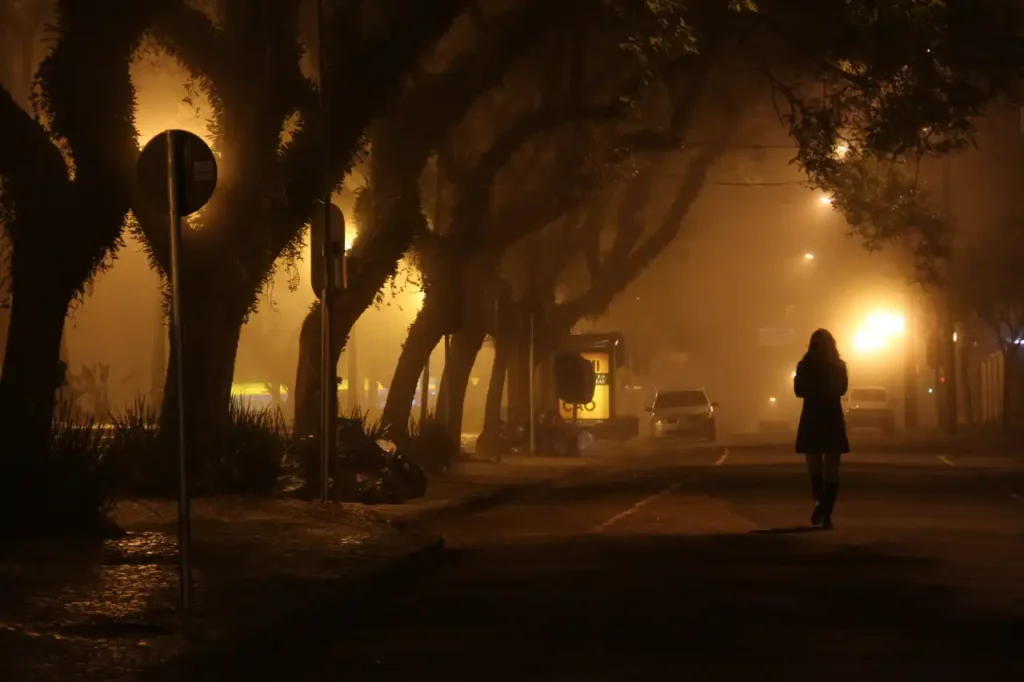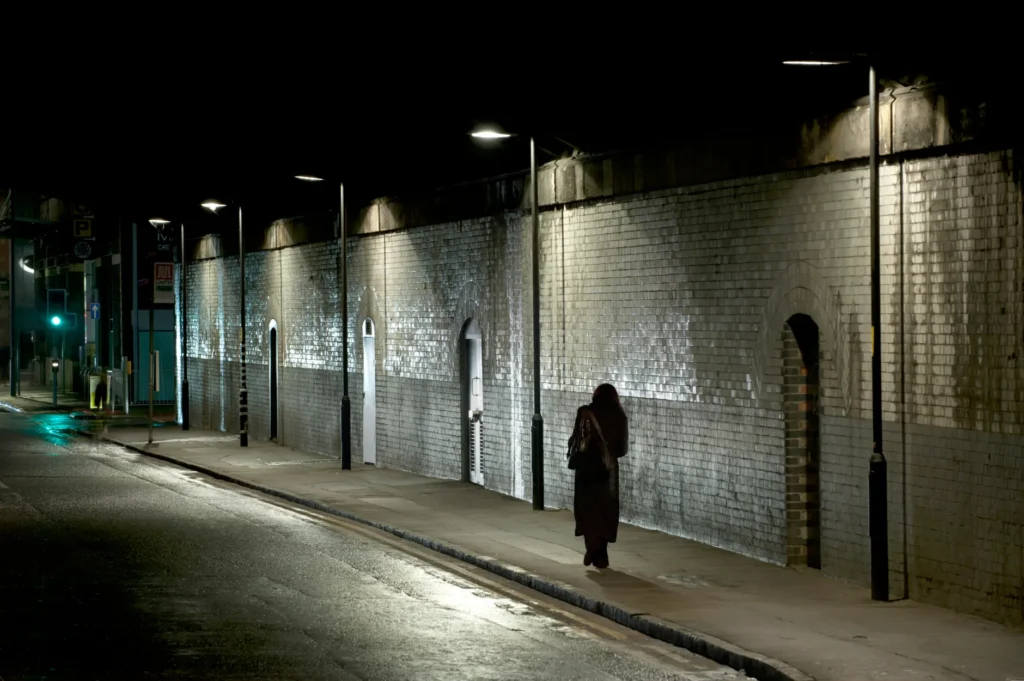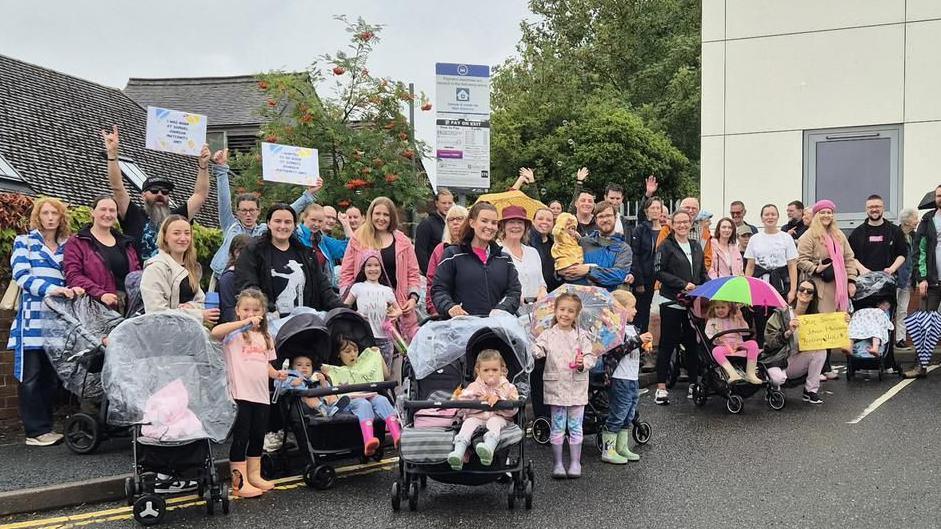One in 10 girls aged 11 to 16 said they do not feel safe at school. Photograph: UK Stock Images Ltd/Alamy
If somebody told you that 7 in 10 mums now alter how they live — when they leave the house,
the route they take, even what time they return home — just so they can feel safe, you might
blink twice. But that’s exactly what many are admitting to.
Because motherhood doesn’t just come with school runs, nappies, and mental load — now, for
a huge number, it comes with a constant undercurrent of fear. And at night, that fear becomes a
shadow that follows you, even into your home.
When the lights go down, the routine doesn’t
For Claire, mum of two in Bristol, her evening routine used to be simple: dinner, homework,
bedtime stories. But now, she gives the clock more respect. “I don’t leave the house after 8 pm
unless I absolutely have to,” she confesses. “If I hear a noise outside, I double-check every lock.
I text my husband the moment I close the front door.”
Then there’s Zara, from Manchester, who says she avoids walking down her own street
approaching midnight. “I take an extra detour — well lit roads, more populated. It adds five
minutes, but it’s peace of mind.”
They’re not isolated stories. Across forums and social media, mums share changes: leaving
social events early, asking a neighbour to walk you in, avoiding bins runs after dusk, parking
right under a streetlight even if it’s a longer walk, or making sure someone waits until your car
door locks behind you.

Almost half of women feel unsafe walking home in the winterCredit: Getty – Contributor
Why 7 in 10 is not a dramatic headline — it’s reality
It’s hard to find a survey that nails exactly “7 in 10 mums” on night safety (I couldn’t source one
for that exact figure just now). But there is plenty of data backing the broader truth: women and
girls frequently change behaviour to feel safer after dark.
A recent Girlguiding survey showed 68% of girls and young women said they’d altered their
everyday behaviour to avoid harassment or danger, including avoiding public transport alone or
not going out after dark. The Guardian
Another report from the security firm Mitie claimed nearly half of women feel unsafe in the UK
during winter months, with one in three changing their route home at night to feel safer. The
Sun
When you combine that with the pressure mums already face — juggling schedules, children,
work, mental load — it’s no wonder many sacrifice comfort or convenience in the name of
safety.
Sneaking in the burden: what gets lost
These adjustments may seem small — skipping an extra errand, avoiding a dark alley — but the
weight piles.
● Freedom eaten away: A mother reported she no longer felt comfortable leaving her
children for brief evening errands or letting them walk to nearby shops after dark.
● Guilt and isolation: Some mums confess to lying about why they’re leaving early from a
gathering. “I always say I’m tired,” one said, “because people ask why I don’t stay later.”
● Mental exhaustion: Every deviation, every double-check, every awareness of shadows
— those cognitive costs add up, quietly draining energy.
● Safety vs routine trade-offs: Even everyday chores — picking up a parcel, retrieving
something from a car late — become weighed decisions.

Almost half of women feel unsafe walking home in the winterCredit: Getty – Contributor
Real voices: what mums are saying
● “I stopped going to the playground in the evening. I used to take my toddler out until 9
pm in summer; now I always aim to be home by sunset.”
● “If I’ve got to go to the bins or bring in the washing after dark, I double-check all
windows, keep my phone on, and try to have someone close by.”
● “I’ve chosen houses based on street lighting, proximity to neighbours, how busy the
street is at night. It wasn’t something I considered before having kids.”
These aren’t extreme or isolated behaviours — they’re safety strategies.
What you can do (practical tips that actually help)
- Plan your exit times consciously
If you know you’ll be out later, try to group tasks so you’re not making extra trips after
dark. - Use shared journeys / buddy systems
Ask a friend, neighbour or trusted contact to walk with you or wait until you’re safely
inside. - Stay on well-lit, populated paths
Avoid shortcuts, parks, dark alleys. Use streets you know others frequent. - Keep communication active
Use apps that share your location with someone you trust during your walk home. Some
safety apps let contacts “virtually walk you home.” - Improve your home perimeter
Motion-sensor lights, strong door locks, alarms — small upgrades can make a big
difference in how safe you feel. - Carry a safety tool
That might be a flashlight, whistle, or even a personal alarm — something simple,
portable, and accessible when you need it. - Talk it through
With your partner, friends, neighbours. Don’t swallow the stress alone. Share safety
strategies and adjust them together.
Because it’s more than fear — it’s background noise of
parenthood
This sort of caution doesn’t show up in many Instagram reels or “perfect mum” diaries, but it’s
part of how many live now. Being a mother doesn’t just mean adjusting for schedules, schooling,
or the mental load — for many, it means tailoring your life so fear doesn’t overtake it.
When you hear “7 in 10 mums change routine,” consider it a symptom: a snapshot of how safety
concerns have shifted from the margins into everyday lives.
When everyday life demands rewriting — when you avoid darkness, reposition your steps,
monitor your routes — it’s not paranoia. It’s adaptation.





